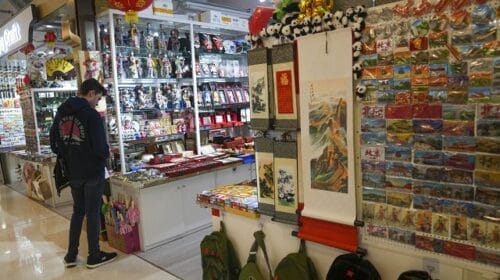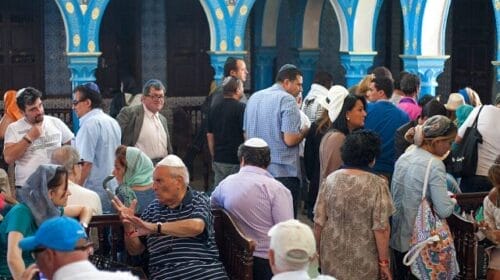Pope Francis hails Mozambique peace deal, reaches out to cyclone victims
September 05: Pope addresses politicians
On his first full day in Mozambique, Pope Francis applauded a recently signed peace deal between government and rebels.
The pontiff’s visit comes after the government and the former rebel group Renamo, now the main opposition party, signed a historic treaty.
The two sides in the former Portuguese colony fought a 15-year civil war that ended in 1992 and killed about a million people. But only last month did they sign a permanent ceasefire.
I hope his visit will bring us effective and long lasting peace.
In talks with President Filipe Nyusi, the pope expressed his “personal gratitude… for the efforts made in recent decades to ensure that peace is once more the norm.”
Reconciliation, he said, is “the best path to confront the difficulties and challenges that you face as a nation.”
He described the accord as “a landmark that we greet with the hope that it will prove decisive.”
The talks at the presidential palace were also attended by Renamo opposition leader Ossufo Momade.
The pope also commiserated with victims of the two cyclones that killed more than 600 and affected hundreds of thousands.
“I would like my first words of closeness and solidarity to be addressed to all those struck by cyclones Idai and Kenneth, whose devastating effects continue to be felt by so many families,” he said.
“I want you to know of my own participation in your anguish and suffering, and the commitment of the Catholic community to respond to this most difficult situation.
“Amid the catastrophe and desolation, I pray that, in God´s providence, constant concern will be shown by all those civil and social groups who make people their priority and are in a position to promote the necessary rebuilding”.
The pope asked Mozambicans to be vigilant against pillaging and unethical exploitation of natural resources “driven by a greed generally not cultivated even by the inhabitants of these lands, nor motivated by the common good of your people”.
September 04: Pope arrives in Mozambique
Thousands of jubilant Catholic faithful on Wednesday welcomed Pope Francis to Mozambique as he kicked off a three-nation tour of African countries, expected to focus on those hard hit by poverty, conflict and natural disaster.*
Touching down just after 6:00 pm local time (1600 GMT) Francis was greeted on the tarmac by President Filipe Nyusi, a military band playing the national anthem and a display of traditional dance.
The first pope to visit Mozambique since John Paul II in 1988, he was then whisked away in his popemobile, flanked by police bikes as crowds waved signs reading ‘welcome to Mozambique Prophet of reconciliation” and danced in celebration.
He stood in his popemobile and waved at the thousands of faithfuls who lined up along the fringes of the city’ main streets as he made the five kilometre (three mile) route from the airport to the Nuncio’s residence in the posh Sommerschield suburb, where he will stay during the visit.


Mozambique itinerary
On Friday he will address a mass at the giant Zimpeto stadium in the seaside capital Maputo.
The pope is expected to discuss the country’s fragile peace process, the devastation caused by two back-to-back cyclones early this year, and the upcoming general election.
The three-day visit to Mozambique comes a month after the government signed a historic peace treaty with the former rebel group Renamo, which is now the main opposition party.
The 16-year civil war devastated the former Portuguese colony and Renamo has never completely disarmed.
The pope may also address the issue of extremism in northern Mozambique where jihadist attacks have claimed more than 300 lives over two years.
Expectations of Mozambicans
“I hope his visit will bring us effective and long lasting peace,” said Arnaldo Menezes, a 25-year-old student, referring to the treaty with Renamo.
“We don’t want war anymore. I want to be able to travel freely across the country, even in the north,” he said.
With elections scheduled for October, some fear violence may break out.
“He is coming at a time when we Mozambicans are trying to consolidate peace,” said Manuela Muianga, a biologist and disaster relief manager in the capital, Maputo.
“We Catholics feel that he is a visionary man who can help Mozambique to strengthen hope and make us forget all those things that make us fight against each other. The biggest concern is the fighting between the two parties. I’m sure he will address this,” she said.
The pontiff will only have time to visit Maputo while in Mozambique, much to the disappointment of those in the central city of Beira where Cyclone Idai killed at least 600 people and left hundreds of thousands homeless in March.
“Although I am unable to go beyond the capital, my heart reaches out to all of you, with a special place for those of you who live in difficult situations,” he said in a video message, adding: “You are all in my prayers.”
The capital has been spruced up for the visit, with the government spending 300,000 euros ($330,000) for the trip, according to Foreign Minister Jose Pacheco, including repairs to Maputo’s cathedral and city roads.
Many locals appear happy to splurge on pope-branded regalia.
Twenty-nine-year-old Catarina Simbine showed off a Pope-branded cloth known as a capulana.
“Me and my fellow congregants from Santa Theresa de Calcutta took about six months preparing for his arrival,” she told AFP.
Beatrice Netu, 70, remembered welcoming the pope on his first visit to Mozambique as “one of the biggest privileges of my life”.
“I would not be able to handle it if the Pope came up to us and greeted us or touched my hand here where I am standing in the crowd, I would probably faint!”
Beyond Mozambique
The pope will also visit the large Indian Ocean island of Madagascar and its much smaller and wealthier neighbour Mauritius — both situated off the eastern coast of Africa.
Mozambique and Madagascar are among the world’s poorest countries and Francis’ decision to visit is seen by commentators as an act of solidarity from a cleric who was a frequent presence in the shantytowns of Argentina and is now called the “pope of the poor”.




